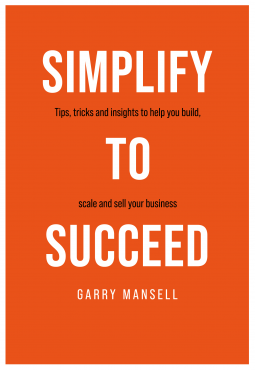
Only one per cent of UK funding went to start-ups led by women in 2020 – even as women owned more than 30 per cent of UK businesses according to WealthiHer.
Garry Mansell offers WeAreTheCity business founders some timely and practical advice on working with investors, seeking ‘smart money’ and boosting appeal to potential stakeholders at a time when female entrepreneurs’ share of the UK’s multibillion-pound venture capital funding has hovered below two per cent for most of the past decade (figures from investment tracker Dealroom).
I have also watched as a few failed. There are a couple of things that are common amongst those that succeed, namely the attitude of the founders and their perseverance. They also are wise enough to wait around for the ‘smart money’ when they are seeking funding. Let me expand on these points for those reading this who are founders of their own businesses that they are seeking to grow and scale.
For me, the attitude of a business comes from the founders. Successful businesses typically demonstrate three things:
Leadership is key to successful ventures, and it doesn’t only come from the top of a business, although the way you behave will be echoed down through your staff and your middle managers. Your behaviour and attitudes will be the ones that are taken through your business if you employ the right people. If you do this well magic will happen. You will find people who do not have the rank, title or even ‘pay grade’ inside your business will themselves assume the role of leaders at times of pressure and tension. If you and your business have a great attitude you will find that everybody will become a leader.
The second thing you will need to demonstrate is perseverance. History is littered with business failures. Henry Ford failed at least twice. The Mars family failed a few times before launching a massive confectionery, petfood and food brand. Arianna Huffington received masses of rejections for her book before founding the Huffington Post. But what every would-be founder did is persevere and learn from their failures.
Above everything else I look at the attitude and capability of the founders. Do they demonstrate to me the skill set and attitude that I have been speaking about? If they don’t, I won’t invest.
The business plan and the product or service they are offering are important, but secondary. After all, most of the revenue targets inside an early business plan are simply ‘best guesses’.
Good founders demonstrate all those traits I have already mentioned and are actively seeking one other thing: ‘smart money’. By this, I mean money that comes with some expertise from the investors providing the funds. Investors want you to succeed, this is the only way they get a multiple on their money. Therefore, when seeking funding, the investor you want is the one who brings something else to your business. It may be connections or sales prospects, it may be sector expertise, it may be a history and capability to help you raise series A, B and C funding in the future.
In terms of raising funds, never forget as a founder that an investment pitch is a two-way conversation. It may not feel that way when you are in the middle of ‘doing the pitch’, but it is. Apply the third point I made about attitude and ensure your investors are smarter than you and learn from them.
Garry Mansell is the author of Simplify To Succeed, a new book focused on highlighting tips, tricks and insights to help build, scale and sell a business. After a successful 40+ year business career, Garry now specialises in helping entrepreneurs and business owners – from first-year start-ups to scalable, profitable, rapid growth seven-figure companies – achieve their objectives and meet their full potential. He has built, led and divested businesses and has formally advised many others, some of which failed. Now, as a sought after non-executive director, and a board advisor and investor he continues to help other entrepreneurs succeed.

